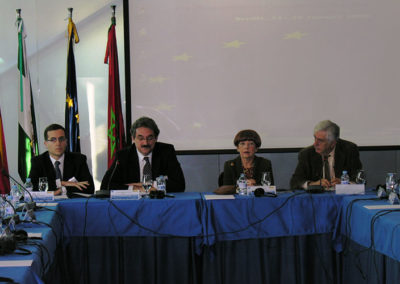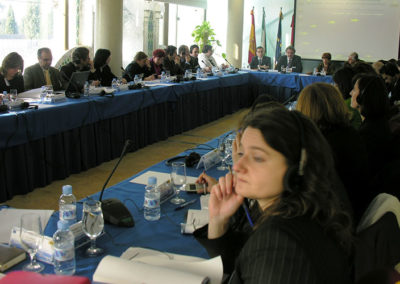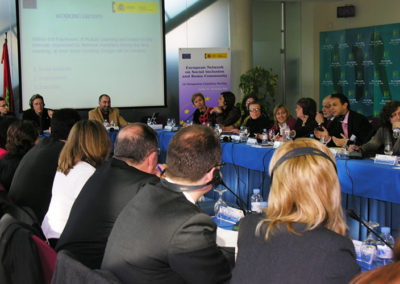Europe has recently seen a steady increase in anti-Gypsyism at all levels, affecting not only Romani communities but also the capacity of governments to address the situation. For this reason, the past 24th and 25th of January a European Network was launched in Seville with the purpose of enhancing the effectiveness of policies targeting the Roma community and promoting their social inclusion.
The European Network on Social Inclusion and Roma Community, conceived in 2007, is aiming at developing a common work approach, sharing strategies, initiatives, lessons learned and best practices, as well as systematizing all knowledge available. Essentially two working lines will be undertaken in this way: transmission and exchange of information, and mutual learning.
In order to provide a better coherence of spending European Structural Funds for Roma community, the governments of twelve countries have joined efforts around a network. Bulgaria, Czech Republic, Finland, Greece, Hungary, Italy, Poland, Portugal, Romania, Slovak Republic, Spain and Sweden for the next years, assisted by Fundación Secretariado Gitano (FSG – Spanish specialised NGO), will actively take part at a Management Committee, participate in working groups and provide regular information.
The Management Committee is the network’s decision-taking body and the working groups will be thematic specialised, at least in three issues: social inclusion, employment and education.
Social inclusion working group will cover aspects such as social protection, health, infrastructure, immigration, equal treatment and gender mainstreaming, among others. Employment group will discuss salaried employment, self-employment, vocational training and gender equality, etc.; and the Education work-group will address all aspects related with educational mainstreaming, access and permanence with gender focus.
If the goal is to truly see how Structural Funds impact the Roma population and foster their social inclusion, the added value of this initiative must be to bring all the stakeholders in the network under the same approach with the intention of reproducing best practices on relevant policies.
Made up of intergovernmental institutions, particularly by ministries of labour and social policy and European social fund managing authorities as well as European Commission, the network technical secretariat is in charge of the FSG.
To date, even though the most EU member States have made some progress in developing strategies and legal frameworks to promote the integration of Roma, the progress is not enough to assure whole citizenship of this population.
The spirit of the network is to share information, innovative ideas, practices and strategies to advance in that direction. As FSG is one of the organisations in Spain fully active in this sense, will assist the network and play the role of administrative and communications coordinator.
When addressing Roma issues this action would bring the matter on the agenda in the EU context and to avoid duplication, gain precious time, learn from experience, successes and possible mistakes and have similar standards throughout Europe. The commission is keen to ensure that the situation of the Roma is taken into account in all EU programmes and policies that could be significant in this context.
The social inclusion target needs to be addressed on a sustainable long-term basis. Thus, the European Network on Social Inclusion and Roma Community is a very important step to put up a strong base and join efforts around the European Union.
The next network meeting will be hosted by Greece in September 2008. Before that, network members will meet in April in Romania to plan the composition and activities of the Working Groups.
RELATED DOCUMENTS




